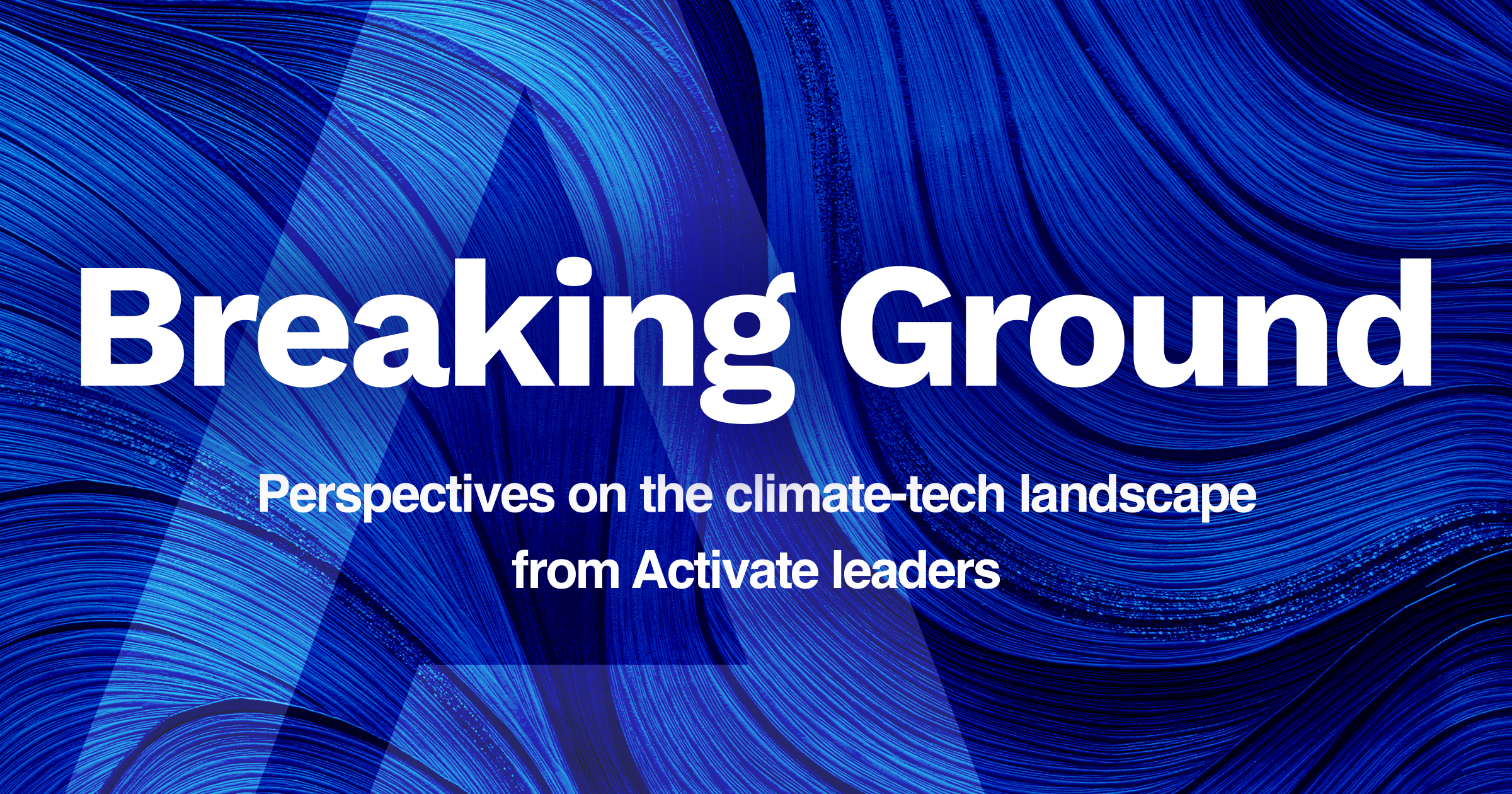A Note to the Boston Climate-Tech Community as We Enter Adulthood
December 19, 2023
By Dan Recht, Managing Director - Activate Boston

You can start the story of the Boston climate-tech ecosystem in a lot of ways, but I begin with the founding of the MIT Energy Club and the Harvard Energy Journal Club within a few months of each other in 2004 and 2005. These graduate student clubs became hubs for young scientists and businesspeople driven to do something about the climate crisis and kicked off the web of informal relationships that make our ecosystem possible (including several of my closest friendships). That means our community is turning 19 this year—and finally emerging from an adolescence characterized by rapid growth in size and maturity, along with a fair amount of teenage awkwardness.
To see the growth, follow the money: in 2008, climate-tech companies in Boston collectively raised less than $400M in venture capital, while in 2022, Form Energy alone raised a $450M series E funding round.
“Our community is turning 19 this year—and finally emerging from an adolescence characterized by rapid growth in size and maturity, along with a fair amount of teenage awkwardness. ”
To see the awkwardness, follow the trajectories of some early standard bearers. Energy storage company Ambri began with a splash in 2010 but endured technical challenges and painful layoffs before finding its footing in the current grid-scale battery boom. Solar company 1366 Technologies got started in 2009 and battled for more than a decade, including a quiet merger into CubicPV, before finally emerging as a potential hero of the drive to reshore silicon wafer production. The journeys of these two companies are emblematic of the winding roads taken by many Boston climate startups and, alongside them, the paths of many of us who grew up in this ecosystem. We have survived through long years of heads-down technical and commercial work to arrive as adults with an important role to play in a changed world.
What does it mean for our community to enter adulthood? Accepting responsibility and accepting ourselves is a good start.
In the face of the highest interest rates we’ve seen in the history of our ecosystem—perhaps we all truly become adults the first time we care about interest rates—our community has a responsibility to help founders build businesses with solid fundamentals and make honest tradeoffs between organic and venture-backed growth. In the face of accelerating climate change, we have a responsibility to work together to give innovators at every stage the best chance of success.
“We are the scrappy climate-tech hub that celebrates a startup’s technology and bottom line rather than just hockey-stick growth. ”
In terms of accepting ourselves, the good news is that our identity puts us on solid footing—we are the scrappy climate-tech hub that celebrates a startup’s technology and bottom line rather than just hockey-stick growth. Over the years, the Silicon Valley scene has repeatedly tempted us to adopt its “always crushing it” culture in which every founder is a hero and every startup is changing the world, but I think we’ve always known better. Our community’s strength is doing the hard work of inventing new technologies in service of humanity and building lasting organizations around those technologies to position them for worldwide impact. Adulthood is owning that identity and focusing on getting the job done.
Adulthood is also recognizing when we need to change. We build well, and with dedication, but we don’t always reach out to take care of each other. This hurts in a city where winters can seem to last for years and in a line of work where whole years can feel like winter.
“Our community’s strength is doing the hard work of inventing new technologies in service of humanity and building lasting organizations around those technologies to position them for worldwide impact. ”
I feel lucky to be leading the Activate Boston Community at this pivotal moment. As a nonprofit fellowship supporting the earliest-stage climate-tech founders without taking equity in their companies, we are in a unique position to work across the ecosystem without asking for anything in return.
Founding a climate-tech company was always difficult and lonely, but with fire and flood knocking on the door, it can be existentially terrifying as well. This makes having a community where you belong as your whole self and not just your pitch self more important than ever to the health and success of founders.
I’m proud of the kindness and authenticity of the culture we’ve built with our fellows at Activate Boston, and I extend an open invitation to other climate-tech communities in Boston to work with us to build more kindness and authenticity into our ecosystem. Founders shouldn’t have to go through winter alone, and our community finally has the resources and maturity to do something about it.
